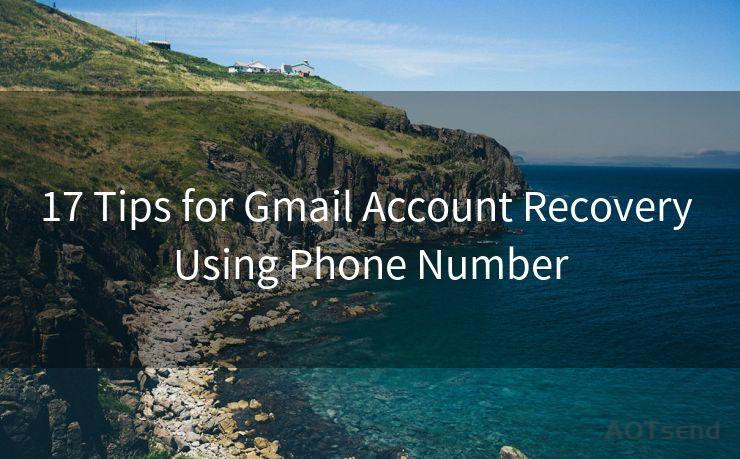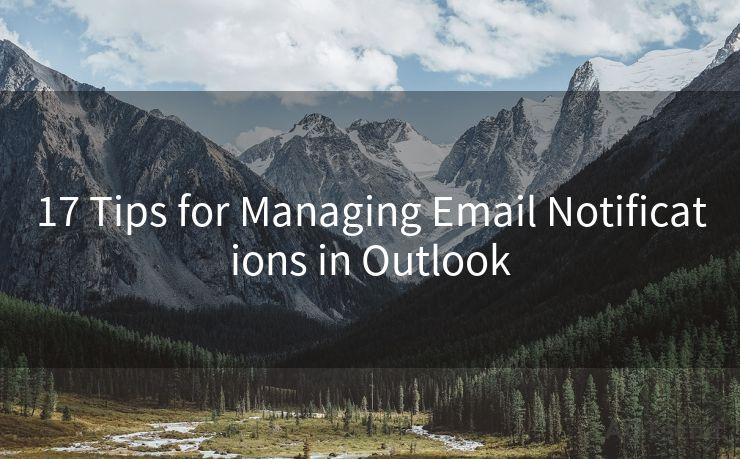19 Validate Smtp Credentials Best Practices
Hello everyone, I’m Kent, the website admin. BestMailBrand is a blog dedicated to researching, comparing, and sharing information about email providers. Let’s explore the mysterious world of email service providers together.




When it comes to validating SMTP (Simple Mail Transfer Protocol) credentials, it's crucial to follow best practices to ensure secure and efficient email communication. Here are 19 essential tips to help you validate SMTP credentials securely:
1. Use Strong Passwords
Always create strong and unique passwords for your SMTP accounts. A strong password should be a mix of uppercase letters, lowercase letters, numbers, and special characters.
2. Enable Two-Factor Authentication
Whenever possible, enable two-factor authentication (2FA) for an extra layer of security. This ensures that even if your credentials are stolen, hackers still can't access your account without the second factor.
3. Regularly Update Credentials
Periodically update your SMTP credentials to reduce the risk of unauthorized access. Rotating passwords helps mitigate the damage that can be caused by stolen credentials.
4. Avoid Storing Credentials in Plain Text
Never store SMTP credentials in plain text. Use secure encryption methods to protect sensitive information.
5. Validate Credentials on Secure Connections
Always validate SMTP credentials over a secure connection, such as SSL/TLS, to prevent eavesdropping and man-in-the-middle attacks.
6. Implement Rate Limiting
Implement rate limiting mechanisms to prevent brute-force attacks on your SMTP server. This limits the number of login attempts from a single IP address within a specific time frame.
7. Monitor and Log Activity
Regularly monitor and log all SMTP activity. This helps identify any suspicious or unauthorized access attempts.
8. Use Dedicated IP Addresses
Consider using dedicated IP addresses for your SMTP server. This can help improve email deliverability and reduce the chances of your emails being flagged as spam.
9. Validate Domain Ownership
Ensure that you validate domain ownership when setting up SMTP credentials. This helps prevent email spoofing and phishing attacks.
10. Implement DMARC, DKIM, and SPF
Adopt email authentication protocols like DMARC (Domain-based Message Authentication, Reporting, and Conformance), DKIM (DomainKeys Identified Mail), and SPF (Sender Policy Framework) to enhance the security of your emails.
11. Educate Users on Secure Practices
Educate your users on secure email practices, including how to recognize and avoid phishing scams, and the importance of protecting their credentials.
12. Use Secure Email Gateways
Deploy secure email gateways to filter out malicious emails and protect your SMTP server from incoming threats.
13. Regularly Audit SMTP Configurations

Periodically audit your SMTP configurations to ensure they are up to date and secure. This includes checking for any vulnerable settings or outdated software.
14. Implement Access Controls
Restrict access to your SMTP server to authorized users only. Implement role-based access controls to ensure that only those with the necessary permissions can access sensitive information.
15. Backup and Disaster Recovery Plan
Have a backup and disaster recovery plan in place for your SMTP server. This ensures business continuity in case of any unexpected events.
16. Keep Software Updated
Regularly update your SMTP server software to the latest version to patch any known security vulnerabilities.
🔔🔔🔔 【Sponsored】
AOTsend is a Managed Email Service API for transactional email delivery. 99% Delivery, 98% Inbox Rate.
Start for Free. Get Your Free Quotas. Pay As You Go. $0.28 per 1000 Emails.
You might be interested in:
Why did we start the AOTsend project, Brand Story?
What is a Managed Email API, How it Works?
Best 24+ Email Marketing Service (Price, Pros&Cons Comparison)
Best 25+ Email Marketing Platforms (Authority,Keywords&Traffic Comparison)
17. Test Your Security Measures
Conduct periodic penetration testing and vulnerability assessments to identify and address any weaknesses in your SMTP security measures.
18. Encrypt Archived Emails
Ensure that any archived emails are also encrypted to protect sensitive information from unauthorized access.
19. Comply with Data Protection Regulations
Stay compliant with data protection regulations, such as GDPR, by implementing appropriate security measures for your SMTP credentials and email data.
By following these best practices, you can significantly enhance the security of your SMTP credentials and protect your organization from potential email-based threats. Remember, security is an ongoing process, and it's essential to stay vigilant and proactive in your approach.




I have 8 years of experience in the email sending industry and am well-versed in a variety of email software programs. Thank you for reading my website. Please feel free to contact me for any business inquiries.
Scan the QR code to access on your mobile device.
Copyright notice: This article is published by AotSend. Reproduction requires attribution.
Article Link:https://www.bestmailbrand.com/post4628.html











